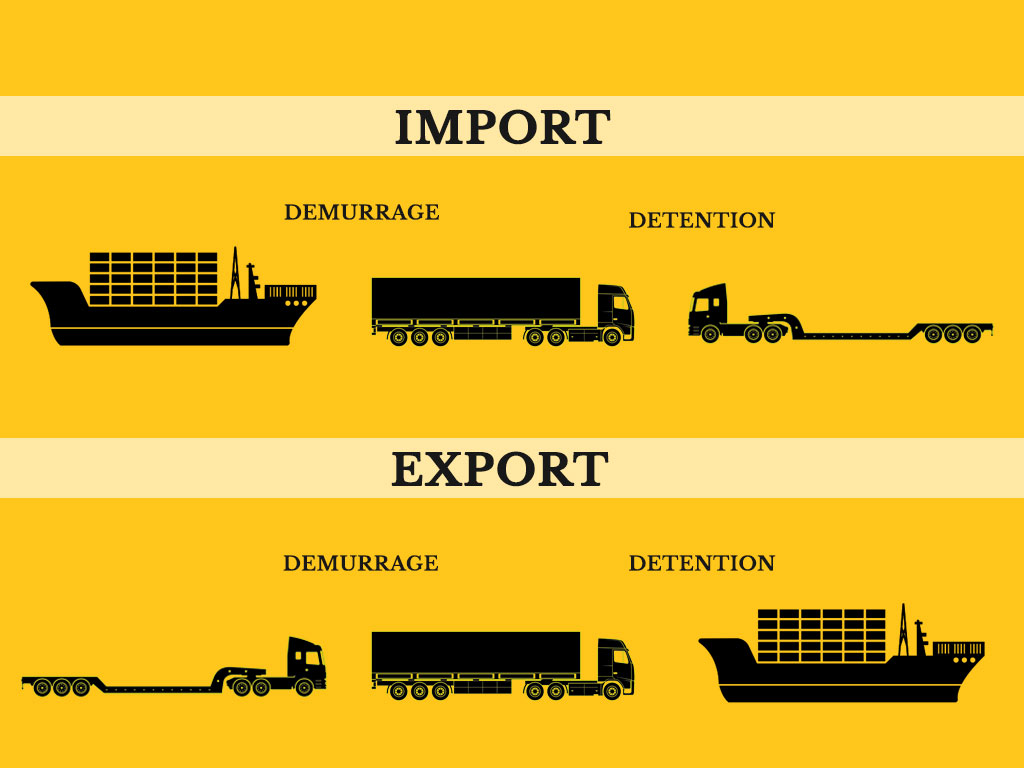
In the realm of international shipping and logistics, demurrage is a crucial concept that impacts the efficiency and cost-effectiveness of transporting goods by sea. Demurrage refers to the fees charged when cargo remains in a port beyond the allowed free days, either waiting to be loaded onto a vessel (export demurrage) or waiting to be picked up after arrival (import demurrage).
What is Demurrage?
Causes of Demurrage
Implications of Demurrage
Managing Demurrage Costs
Conclusion
Avoid Demurrage and Its Repercussions with TFI
This article aims to delve into the intricacies of demurrage, exploring its significance, causes, implications, and how businesses can effectively manage and mitigate demurrage costs.
What is Demurrage?
Demurrage is essentially a form of detention fee imposed by shipping lines or terminal operators to compensate for the use of their equipment (containers) or facilities (port terminals) beyond the agreed-upon timeframe. In practical terms, when cargo is not moved in or out of the port within the stipulated free days (typically ranging from a few days to a couple of weeks), demurrage charges start accruing.
Causes of Demurrage
Several factors can contribute to demurrage charges. They are as follows
- Customs Clearance Delays – Delays in obtaining customs clearance for import or export shipments can lead to containers sitting idle at ports, triggering demurrage.
- Logistical Issues – Inefficient transportation arrangements, such as delayed trucking services or insufficient coordination between different parties in the supply chain, can cause delays in moving cargo.
- Port Congestion – High port congestion due to increased volumes of cargo or labor strikes can result in longer waiting times for vessels to berth and load/unload cargo.
- Documentation Errors – Incorrect or incomplete documentation can lead to delays in cargo release or customs clearance, ultimately resulting in demurrage charges.
- Unforeseen Events – Natural disasters, adverse weather conditions, or geopolitical issues can disrupt port operations and cause delays, leading to demurrage fees.
Implications of Demurrage
Demurrage charges can have significant financial and operational implications for businesses involved in international trade:
- Increased Costs – Accumulating demurrage fees can inflate shipping costs and erode profit margins, especially for businesses with high shipment volumes.
- Supply Chain Disruptions – Delays in cargo release can disrupt supply chain schedules, impacting production timelines and customer deliveries.
- Reputational Risks – Persistent demurrage issues can tarnish a company’s reputation, leading to dissatisfaction among customers and business partners.
- Legal Liabilities – Failure to settle demurrage charges promptly can result in legal disputes and potential financial penalties.
Managing Demurrage Costs
To effectively manage demurrage charges and minimize disruptions, we advise businesses to adopt the following strategies:
- Optimize Supply Chain Planning – Streamline logistics processes and optimize transportation routes to reduce transit times and minimize the risk of delays.
- Enhance Communication – Foster open communication and collaboration among all stakeholders in the supply chain, including shippers, consignees, freight forwarders, and customs brokers.
- Improve Documentation Accuracy – Ensure all shipping documents are accurate, complete, and compliant with regulatory requirements to expedite customs clearance and cargo release.
- Monitor Port Conditions – Stay informed about port conditions and potential disruptions, such as congestion or labor strikes, and adjust shipping schedules accordingly.
- Negotiate Favorable Terms – Work with shipping lines and terminal operators to negotiate favorable demurrage terms, including extended free days and transparent fee structures.
Conclusion
Demurrage remains a critical aspect of international shipping, reflecting the complexities and challenges inherent in global trade. By understanding the causes and implications of demurrage and implementing proactive strategies to manage and mitigate demurrage costs, businesses can optimize their supply chains, enhance operational efficiency, and maintain competitiveness in the dynamic world of maritime logistics.
Avoid Demurrage and Its Repercussions with TFI
Are demurrage charges in ports impacting your bottom line? Are inefficient cargo handling and delays causing unnecessary financial strain on your business? At TFI, we leverage our customs clearance expertise to help you avoid demurrage and detention as well as their repercussions. This is instrumental in minimizing your costs, streamlining operations, and enhancing supply chain efficiency.
Get in touch with our customs clearance experts in the UAE today!



